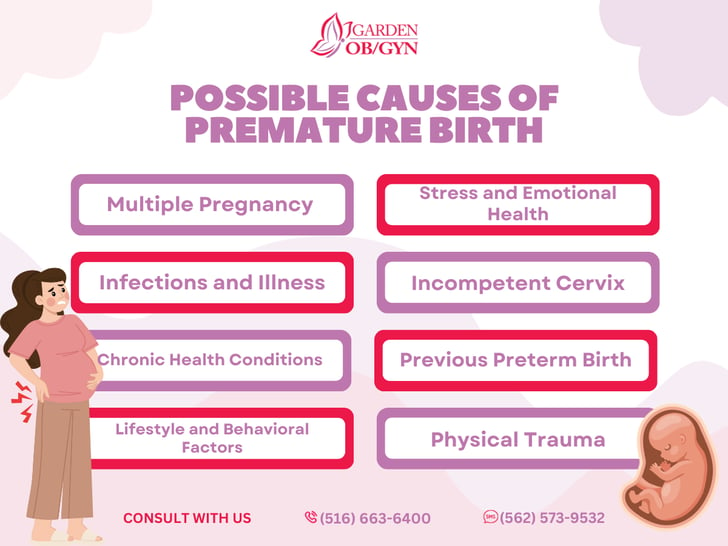Causes of Premature Birth
Premature birth is a critical issue in maternal and child health, occurring before 37 weeks of pregnancy. Identifying causes and early intervention are essential for reducing risks.

Premature birth, or preterm birth, is a significant concern in maternal and child health. It occurs when a baby is born before 37 weeks of pregnancy have been completed. While medical advancements have greatly improved the survival rates of premature infants, the underlying causes of premature birth remain a subject of extensive research and concern. In this article, we will explore the various factors that contribute to premature birth and discuss the importance of early detection and intervention to reduce the associated risks.
- Multiple Pregnancy
One of the leading causes of premature birth is carrying more than one baby, known as a multiple pregnancy. The demands on the mother's body increase with each additional fetus, often leading to early labor and birth. In such cases, the risk of complications for both the mother and the babies is higher, making close monitoring and early intervention crucial.
- Infections and Illness
Infections and illnesses, particularly those affecting the uterus, placenta, or amniotic fluid, can lead to premature birth. Conditions like urinary tract infections, bacterial vaginosis, and sexually transmitted infections can trigger early contractions and rupture of the amniotic sac. It is essential for pregnant individuals to receive regular prenatal care to detect and manage any infections promptly.
- Chronic Health Conditions
Pre-existing health conditions in the mother can significantly increase the risk of premature birth. Chronic conditions like diabetes, hypertension, and autoimmune disorders may necessitate careful management throughout pregnancy to reduce the chances of preterm labor. Medication adjustments and lifestyle modifications may be required.
- Lifestyle and Behavioral Factors
Certain lifestyle and behavioral factors can contribute to premature birth. Smoking, drug use, excessive alcohol consumption, and poor nutrition are all associated with an increased risk of preterm birth. Expectant mothers are encouraged to make healthy choices for both their own well-being and the health of their developing baby.
- Stress and Emotional Health
Stress and emotional health play a significant role in pregnancy outcomes. High levels of stress, anxiety, and depression can lead to hormonal imbalances that may trigger preterm contractions. Adequate social and emotional support during pregnancy can help alleviate these factors.
- Incompetent Cervix
Some women have a condition known as an incompetent or weak cervix, which may not remain closed during pregnancy as it should. This condition can result in premature birth and is often detected through routine prenatal examinations. In such cases, a procedure known as cervical cerclage may be recommended to provide additional support to the cervix.
- Previous Preterm Birth
A history of previous premature birth can increase the likelihood of experiencing it again in subsequent pregnancies. Medical professionals closely monitor women with a history of preterm delivery and may recommend preventive measures such as progesterone supplements or cervical cerclage.
- Physical Trauma
Physical trauma, such as accidents or falls during pregnancy, can lead to early labor. It's important to seek medical attention immediately after any injury to assess potential risks to both the mother and the developing baby.
- Environmental Factors
Environmental factors, such as exposure to pollutants and toxins, can also contribute to premature birth. Pregnant individuals should be mindful of their surroundings and avoid exposure to harmful chemicals and substances.
Premature birth is a complex and multifaceted issue with a range of contributing factors. Recognizing and addressing these factors is crucial for improving the outcomes for both mothers and their babies. Early prenatal care, lifestyle adjustments, and effective management of medical conditions are all essential components of preventing premature birth. By raising awareness and taking proactive measures, we can work towards reducing the incidence of preterm birth and ensuring healthier outcomes for pregnant individuals and their newborns.
































